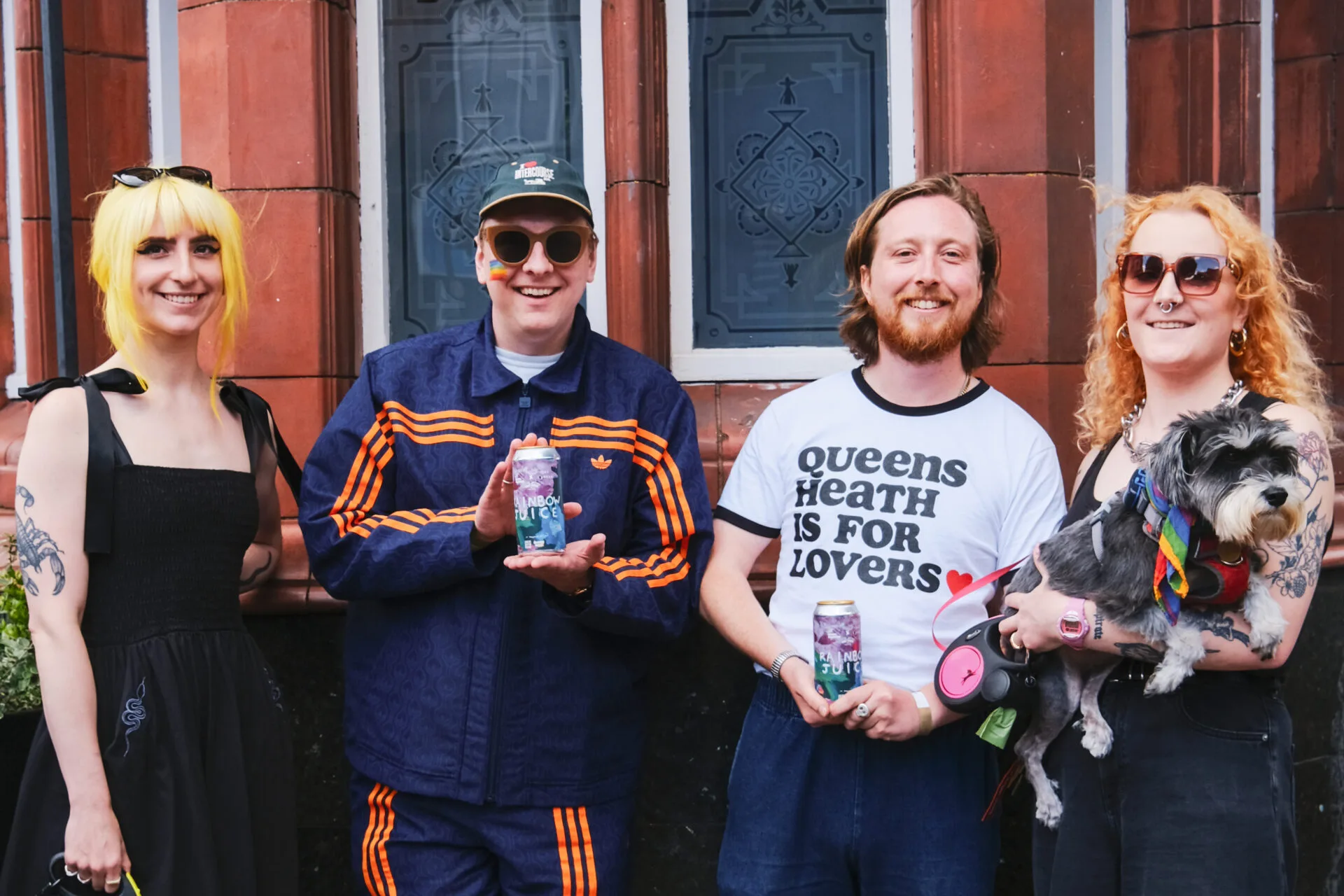One thing you can rely on from South American fans is enthusiasm, and tonight is no exception. The artist on the bill at Electric Brixton is relatively unknown in the UK, but the gig is sold out, because it seems like every Brazilian in London has come out to party this evening.
Performing tonight is Liniker, a Black Trans singer and musician from Ararquara in the south of Brazil, who I had come to know as a deeply moving and sultry soul singer. But to my slight surprise, the crowd is dancing riotously, the low ceilings dripping with sweat. The crowds are captivated by this striking woman, singing back to her with a deafening volume. The energy in the room is wild. Behind the mic, Liniker leans into her music rhythmically, a wind machine blowing blonde curls out of her face.
I shouldn’t have been surprised at this reaction. When we spoke on the phone the day before the London concert, Liniker predicted the atmosphere for her final tour date perfectly. “The concert is hot, the concert is warm, the concert is dancing, the concert is to be present,” she said. “I think it’s impossible to do art, to perform, to sing, without presence. It’s the way that we are connected with ourselves, the way that we connect with our ancestrality, the way we are connected with the world. It is impossible to do things without intention, I think. And presence is intention.”
She has just turned 30, but already has a long music career under her belt. In 2015 she formed the group Liniker e os Caramelows, with whom she earned her first Latin Grammy nomination four years later, for the album Goela Abaixo. After the band split in 2020, Liniker went solo, clinching the deal and officially becoming the first Black Trans Grammy winner in 2022, for her album Indigo Borboleta Anil.
If it wasn’t already clear, Liniker is a deepy spiritual person. “I love to be in contact with my ancestrality,” she says, telling me she also follows the African-diasporic religion Candomblé, which combines traditional African religious practices with elements of Catholicism. “I like to be guided by my ancestors.”
It’s now been nearly a year since the release of Liniker’s second album, Caju (“cashew”, also a working-class district of Rio de Janeiro), which was inspired by a desire to “translate an album to an entire summer day.” Caju is sumptuous and dreamy, with well-crafted production that allows Liniker’s voice to dance through different tempos. When she and her band perform on stage, they are all dressed in earthy tones, like a late summer sunset.
Raised by a single mother, Liniker considers her exposure to jazz, R&B and samba to be her greatest inspiration behind settling on neo-soul. “My family always gave me the best music to listen to. And being a searching girl, I love to listen to people who inspire me, and to listen to musicians who can make a song with great texture.”
Liniker also drew inspiration from her home country. “In Brazil we have a mix of everything. So I’ve put everything into my music.”
A nation of limitless duality, Brazil has one of the highest LGBTQ+ murder rates in the world, despite having well established laws promoting LGBTQ+ equality. It is also changing rapidly, and only two years ago was under the control of the far-right populist Jair Bolsonaro (an opponent of same-sex marriage).
“Brazil is a very special place,” says Liniker. “But also a very hard place to live, because we have a lot of issues, and very bad things politically. But I think that Brazil gave me the light, the inspiration, my lyrics. Brazil gave me the place where I was born. And it’s nice to get out and be the Brazil outside [the country], to people who are listening to me… I think that Brazil is a special place to be inspired.”
On stage between songs, she breaks from her Portuguese lyrics to speak to the audience in English. She needn’t bother – they’re speaking to each other in Portuguese, waving a combination of Pride flags and the flags of her home nation. There are fans of all ages, sexualities and creeds here. The variety suggests her music transcends boundaries of identity, and speaks to something deeper within the spirit.
“She’s one of our generation,” says a 32-year-old fan wearing merch, who I speak to after the show. “I don’t know how much you know about Brazilian music, but we are really attached to music made by our own.” Liniker’s identity is an especially poignant aspect of this admiration. “We saw her growing up in our face. It’s so beautiful to see how a Black Trans woman like her has achieved what she achieved, and with her talent… she shows that we can do it. Her songs touch us in different places.”
I see a fan wearing a ‘Protect The Dolls’ tee outside the venue and immediately go to speak to him. “Knowing how Brazil is a challenging country for Queer people, seeing a Black Queer woman going so far? It’s everything. I think all of us here feel the representation and the power of Liniker on stage.
“It really goes to show,” he says, “that for some, art is a privilege. But for artists like Liniker, art is resistance.”
Though she has at times found the focus on her identity over her music frustrating, Liniker is clear: “It 100% would have been impossible to do what I’ve been doing without my identity. My identity is the way I want to grow, the way I want to share love and music with everybody. I’m singing to my community, but I want to sing to the world.”





















